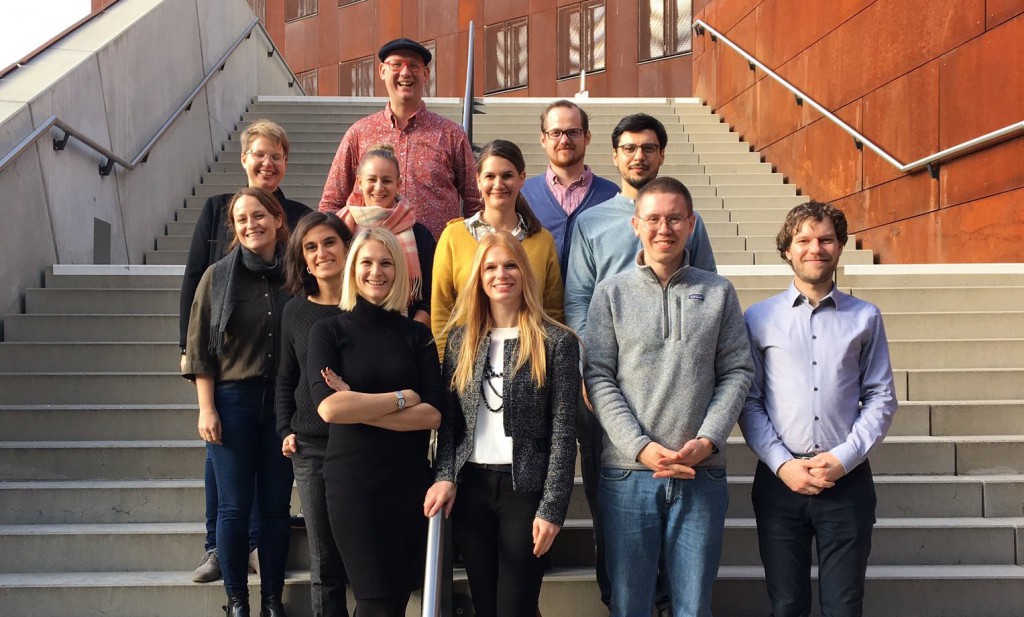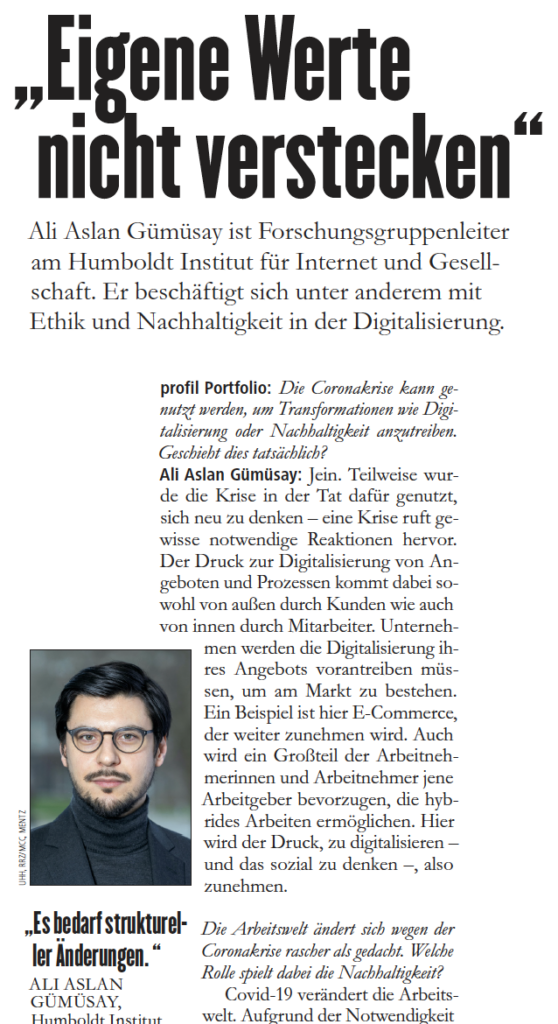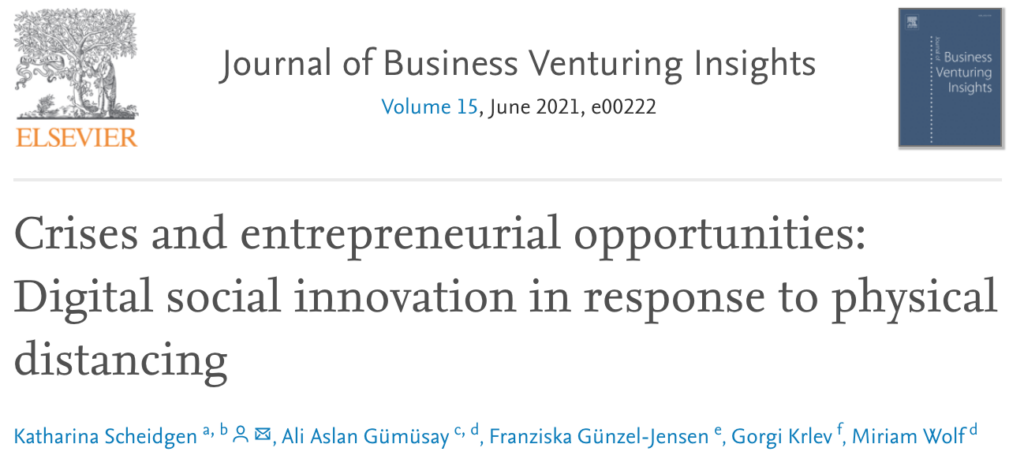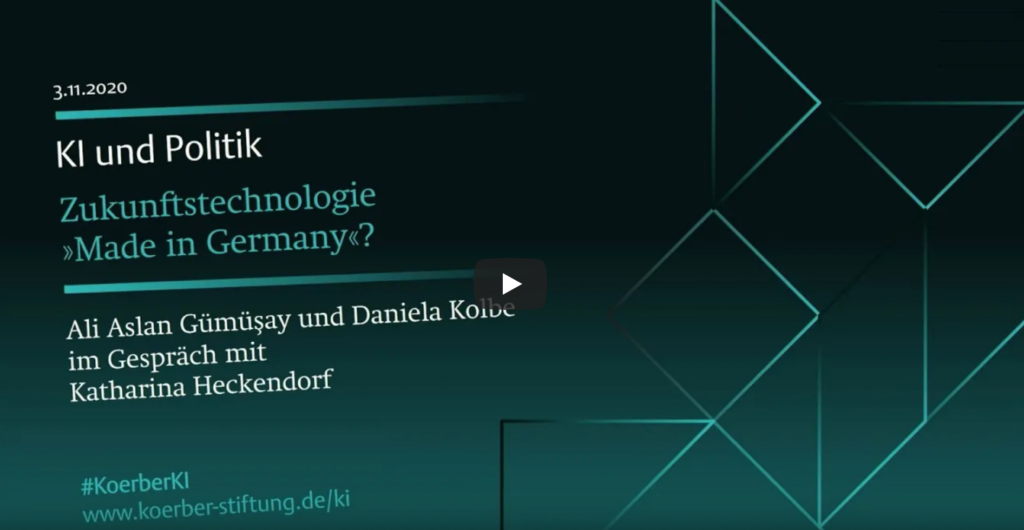Habe in den vergangenen Wochen mehrere Interviews an der Schnittstelle von Digitalisierung und Nachhaltigkeit gegeben – für das Magazin Profil, dem VHB mit 3 Thesen, und für den Howoge Nachhaltigkeitsbericht.
Digital Social Innovation
New co-authored article on digital social innovation and physical distancing.
Some highlights:
- Physical distancing constraints promote digital brokering and digitized services.
- New entrepreneurial actors engage in improvised venturing to create social innovation.
- Existing ventures engage in rapid pivoting and pro-social product extension.
- Social innovation in response to crisis can be ephemeral or enduring.
Abstract: As physical distancing is a core measure of containing the spread of COVID-19, this pandemic is a crisis that has uprooted social interaction. While current research mainly focuses on crises as a challenge for entrepreneurial ventures and potential regulatory response mechanisms, we complement this research by addressing the question of how crises in general—and COVID-19’s physical distancing measures in particular—shape entrepreneurial opportunities for social innovation. Based on two rounds of data collection—desktop research mapping out 95 entrepreneurial activities in Germany and four focus groups—we find first that entrepreneurs are proactive agents in alleviating the negative consequences of the COVID-19 crisis. They do so by creating two types of digital social innovation: digital brokering and digitized services. Second, we note that negative societal consequences of crises can be buffered by shifts in entrepreneurs’ strategic orientation through improvised venturing, rapid pivoting and pro-social product extension. Third, we note variance in the persistence of changes with consequences for entrepreneurial opportunities and social innovation: Whereas some social innovation are rather ephemeral, others might endure and promise long-term impacts. We offer key insights for the literature on crisis, social innovation and hybrid organizing as well as on the implications for entrepreneurship practice and policy.
(Re-)search
Grateful to be mentioned. Even more grateful to work with wonderful colleagues on topics such as entrepreneurship, innovation, digitalization – all with a societal perspective.
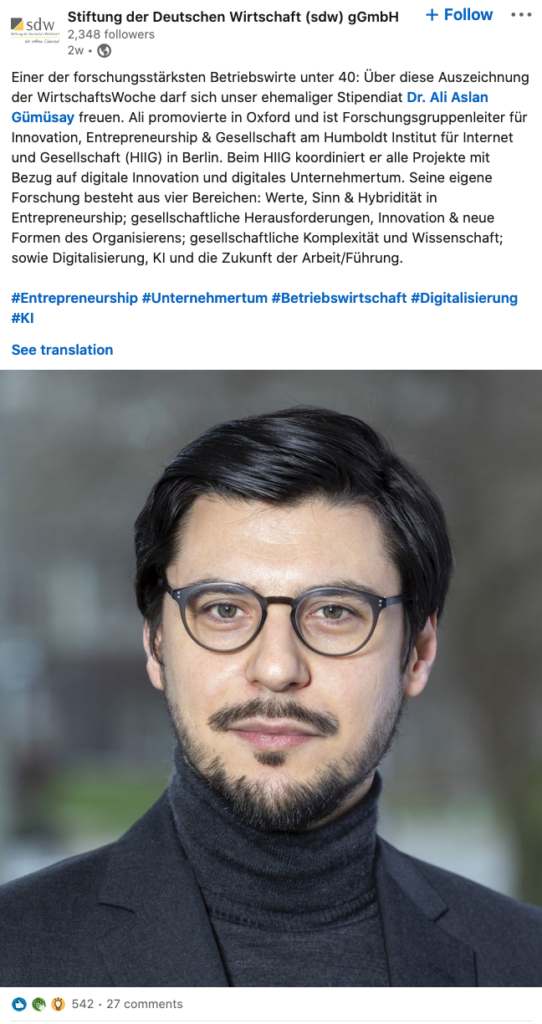
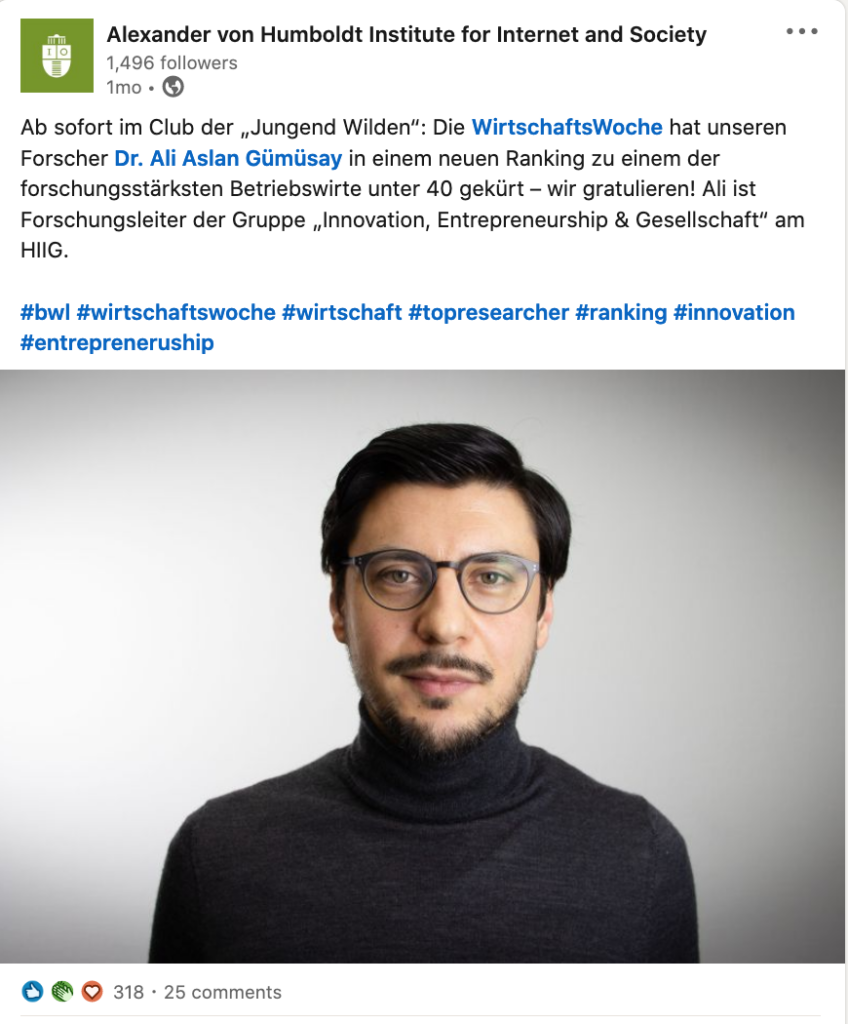
Technology, entrepreneurship & society
An article in the Süddeutsche Zeitung about technology and entrepreneurship in times of crisis can be accessed here.
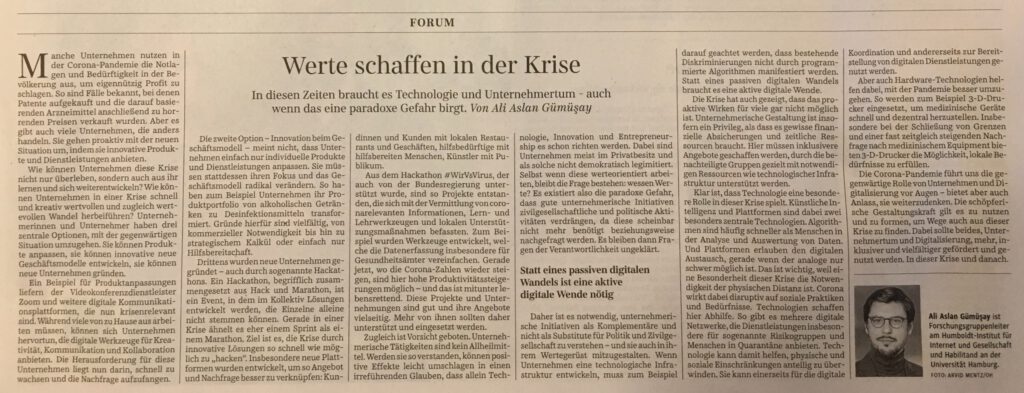
Panel on AI, Business & Politics
Inclusive digital platform innovation in the face of COVID-19
Numerous digital platforms have emerged as a go-to response to the Covid-19 crisis – building on conventional platform characteristics, but using alternative, more inclusive organisational models.
Platforms face opportunities of market, motivation & momentum to address spatial, social & scale/speed challenges.
By offering the innovations that people most need right now, more inclusive platform alternatives may now have an opportunity to step up and secure a more significant role in the platform economy of the future.
The article is co-authored with Nicolas Friederici and Philip Meier.
Algorithms at work
Just read a new, critical & constructive piece by Kellogg, Valentine & Christin on algorithms at work.
Let me offer a very brief summary:
I. Affordances of algorithmic systems: 1. Comprehensive 2. Instantaneous 3. Interactive 4. Opaque.
II. Algorithmic control: Direct workers (1. Restrict 2. Recommend), Evaluate workers (3. Record 4. Rate), Discipline workers (5. Replace 6. Reward).
III. Worker experience: 1. Manipulation 2. Disempowerment, 3. Surveillance 4. Discrimination 5. Precarity 6. Stress.
IV. Forms of algoactivism to resist control: 1. individual action 2. collective platform organizing 3. discursive framing around algorithmic fairness, accountability & transparency 3. legal mobilization on employee privacy, discrimination, worker classification & data ownership.
V. New forms of work & occupation: Algorithmic 1. Curation 2. Brokerage 3. Articulation.
The abstract: The widespread implementation of algorithmic technologies in organizations prompts questions about how algorithms may reshape organizational control. We use Edwards’ (1979) perspective of “contested terrain,” wherein managers implement production technologies to maximize the value of labor and workers resist, to synthesize the interdisciplinary research on algorithms at work. We find that algorithmic control in the workplace operates through six main mechanisms, which we call the “6 Rs”—employers can use algorithms to direct workers by restricting and recommending, evaluate workers through recording and rating, and discipline workers by replacing and rewarding. We also highlight several key insights regarding algorithmic control. First, labor process theory helps to highlight potential problems with the largely positive view of algorithms at work. Second, the technical capabilities of algorithmic systems facilitate a form of rational control that is distinct from the technical and bureaucratic control used by employers for the past century. Third, employers’ use of algorithms is sparking the development of new algorithmic occupations. Finally, workers are individually and collectively resisting algorithmic control through a set of emerging tactics we call algoactivism. These insights sketch the contested terrain of algorithmic control and map critical areas for future research.
DFG Network “Digital Strategizing”
The German Research Foundation (DFG) has approved funding for a new scientific network on strategizing in a digital economy. Digital technologies increasingly affect the process of strategy-making – they impact how actors craft, understand, and execute strategies. Despite the impact of the ‘digital’ on strategy-making, strategy research on this topic is still in its infancy. The goal of this research network is to build a community of scholars interested in the topic of digitalization of strategy-making, to develop a joint research agenda, and to stimulate high-quality research on this topic.
The network is organized by Thomas Gegenhuber (principal investigator), Maximilian Heimstädt, Georg Reischauer, and Violetta Splitter. As a member of this scientific network I enjoyed our first meeting at WU Vienna in November 2019. More to come.